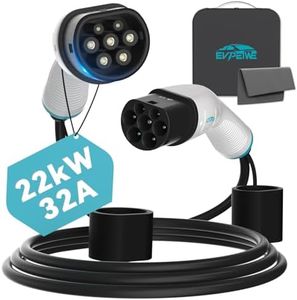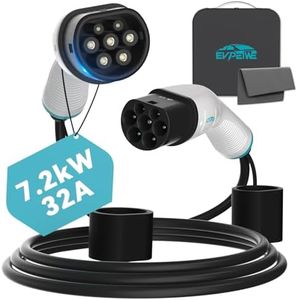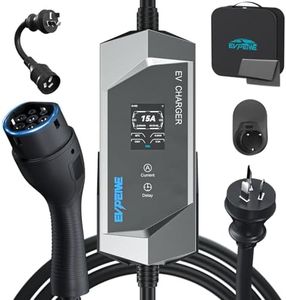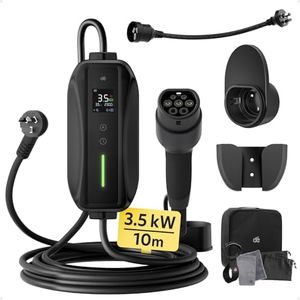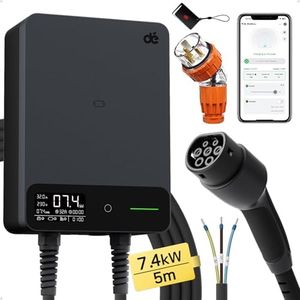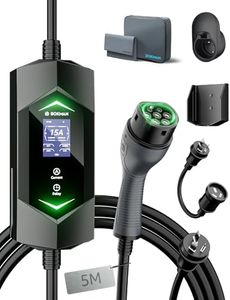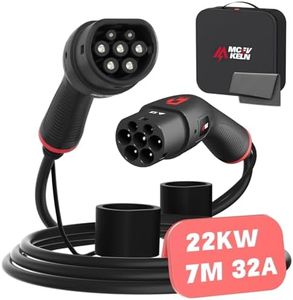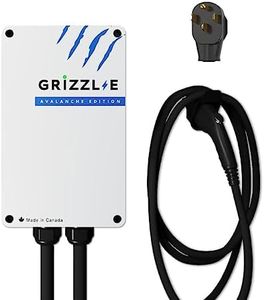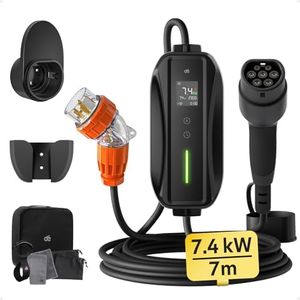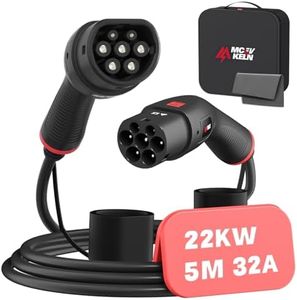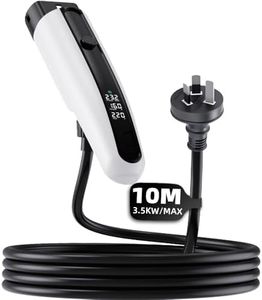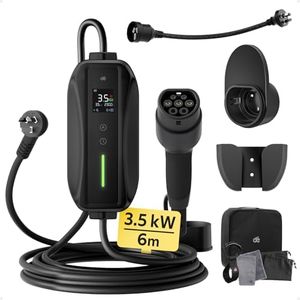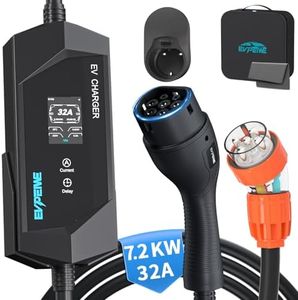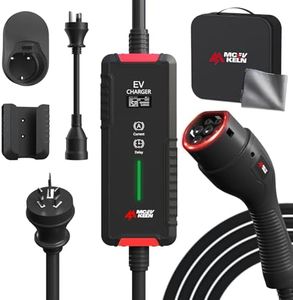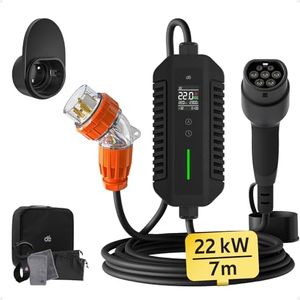We Use CookiesWe use cookies to enhance the security, performance,
functionality and for analytical and promotional activities. By continuing to browse this site you
are agreeing to our privacy policy
10 Best Ev Chargers
From leading brands and best sellers available on the web.By clicking on a link to a third party's website, log data is shared with that third party.
Buying Guide for the Best Ev Chargers
Choosing the right EV charger for your home or business is all about matching your charging needs to the right power, features, and compatibility. With electric vehicles (EVs) becoming more common, having an effective charger can make your life easier, ensuring your vehicle is always ready when you are. To pick the best fit, you should consider key features that influence charging speed, safety, convenience, and long-term compatibility with your vehicle or vehicles you may add in the future.Charging Speed (Power Output)Charging speed is determined by the charger's power output, often measured in kilowatts (kW) or amps (A). It's important because it tells you how quickly you can recharge your EV. Home chargers are usually Level 1 (slower, using a standard wall socket around 1-2 kW) or Level 2 (faster, using a dedicated circuit and typically 3-19 kW). Level 1 is slow and best for occasional or overnight charging, while Level 2 is much faster and ideal if you want a full charge in a few hours. Consider your daily driving habits: if you usually drive short distances and can leave the car plugged in overnight, a slower charger is fine. If you drive more and need faster turnarounds, pick a higher-output Level 2 unit.
Connector TypeConnector type means the actual plug your EV charger uses to connect to your vehicle. Most chargers and modern EVs use the standard J1772 connector in North America, while other regions might use different standards. Some EVs, especially Teslas, might need an adapter or a specific plug. It’s important because you'll want a charger that works seamlessly with your car without fiddling with adapters. Always check your vehicle's connector type and make sure the charger matches it, or includes the right adapter.
Smart Features (Wi-Fi/App Controls)Many modern chargers come with smart features that allow you to schedule charging, monitor energy use, and control the charger remotely via an app. These features are important if you want to track your electricity costs, take advantage of off-peak electricity rates, or manage charging from your phone. Some chargers let you set timers or even integrate with home smart systems. If you want extra control, real-time monitoring, or the ability to optimize your charging schedule, choose a charger with these features.
Installation RequirementsHome chargers can be plug-in or hardwired. Plug-in units are easier to install and can be moved if you relocate, requiring only an appropriate outlet. Hardwired units require a professional electrician and are permanently fixed to your home. This spec matters for convenience, cost, and how permanent you want your setup to be. If you rent or might move soon, a plug-in unit provides flexibility. If you want a cleaner, more permanent solution, hardwiring might be the way to go.
Cable LengthCable length refers to how far the cable on the charger can reach from where it’s mounted to your car’s charging port. This is important to ensure you can conveniently charge no matter how you park in your garage or driveway. Cables typically range from 16 to 25 feet. Shorter cables take up less space and are easier to store, but longer ones give more flexibility. Think about where your charger will be mounted and measure the distance to your car’s charging port; choose accordingly to avoid frustration.
Weather Resistance and DurabilityNot all EV chargers are made to withstand rain, snow, or temperature extremes. Weather resistance, sometimes labeled as an IP rating, ensures your charger will last outdoors. This matters if your charger will be exposed to the elements or not installed in a garage. If you’ll mount the charger outside, look for one rated for outdoor use and resistant to water and dust. For indoor use, basic protection is usually enough.
Safety FeaturesFeatures like overcurrent protection, ground fault detection, and temperature monitoring keep your home, car, and the charger itself safe from electrical hazards. Safety certifications like UL or equivalent are important indicators of a charger built to recognized standards. Always look for these certifications, especially if you'll leave the charger running unsupervised or overnight.
